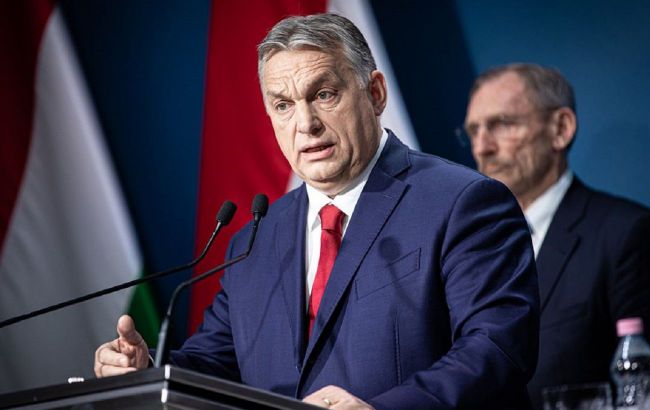Hungary threatens to block Ukraine's EU accession prospects at December summit
 Prime Minister of Hungary Viktor Orbán (facebook.com/orbanviktor)
Prime Minister of Hungary Viktor Orbán (facebook.com/orbanviktor)
Hungary is preparing to veto Ukraine's future accession to the European Union at the December summit, where EU leaders are expected to ratify a positive European Commission recommendation to begin negotiations for Ukraine's accession to the bloc, according to NOS.
It is anticipated that the European Commission will provide a positive report on reforms in Ukraine, Moldova, and six Balkan countries seeking EU membership. However, the Hungarian government intends to block Ukraine's progress towards European integration by demanding certain conditions from Kyiv. Budapest believes that the rights of the Hungarian minority in Ukraine are being violated by the language law.
"New laws have been introduced that have worsened the lives of Hungarians in Ukraine. We cannot agree with that," says Balázs Orbán, the right-hand man of Prime Minister Viktor Orbán.
A political advisor to the Hungarian government notes that Budapest's position is "crystal clear - as long as this law exists, there can be no discussion about the integration of Ukrainians into the European Union."
The advisor to the Hungarian Prime Minister, Balázs Orbán, assures that Budapest "has always been a supporter of Ukraine's closer ties with the European Union," but the new language law "changed everything."
When asked in an interview whether Hungary would block the start of negotiations for Ukraine's EU accession, he replied yes.
"We will block it until the issue is resolved," says the Hungarian politician.
Bargain coin
Ukraine sees the Hungarian threat of veto as a cynical game against the backdrop of improved relations between Budapest and Moscow, as reported in the media.
Brussels has concerns that the Orbán government will take an uncompromising stance on this issue. At the same time, Hungary continues to wait for financial assistance from the EU in the amount of 20 billion euros, which has been blocked due to issues related to corruption and the rule of law in Hungary.
Critics point out that the Orbán government is using the issue of the language law in Ukraine's Zakarpattia region as a bargaining chip, suggesting that Hungary will only lift the veto if the country still receives billion-dollar subsidies from the EU, as reported by the media.
Ukraine's accession to the EU
Ukraine was granted candidate status for EU accession in 2022. However, to become a member of the EU, it is necessary to fulfill seven conditions. According to Reuters, Ukraine has fulfilled two out of the seven conditions required to start negotiations for EU accession.
Previously, Deputy Prime Minister for European and Euro-Atlantic Integration, Olha Stefanishyna, stated that meeting two conditions was a very good result. She reminded that some Western Balkan countries had been working towards Ukraine's level of progress for years, and meeting one recommendation is basically a national celebration.
On November 8, the European Commission is expected to release a report on the progress of EU accession candidates, along with a recommendation to begin negotiations for Ukraine's accession to the EU.
Today, the media revealed details of a secret European Commission document on Ukraine. Journalists found out that the EC considers four out of seven criteria for starting negotiations on Ukraine's EU accession to be fully met.
National minority issues in Ukraine
Hungary's Minister of Foreign Affairs, Péter Szijjártó, previously stated that Hungary would not support Ukraine's EU integration until the issue of national minority rights in Zakarpattia is resolved.
Relations between Ukraine and Hungary became tense in 2017 when the Ukrainian Parliament passed an education law. The law stipulates that the language of teaching in educational institutions is the state language, but one or more subjects may be taught in two or more languages according to the curriculum. In response to this, Hungary criticized the law, claiming that it allegedly "limits the rights of national minorities."
These are not the first such statements from the Hungarian government. Prior to this, the head of the Prime Minister's Office of Hungary, Gergely Gulyás, also stated that Budapest would support Ukraine's EU accession only after changes to the education law.

